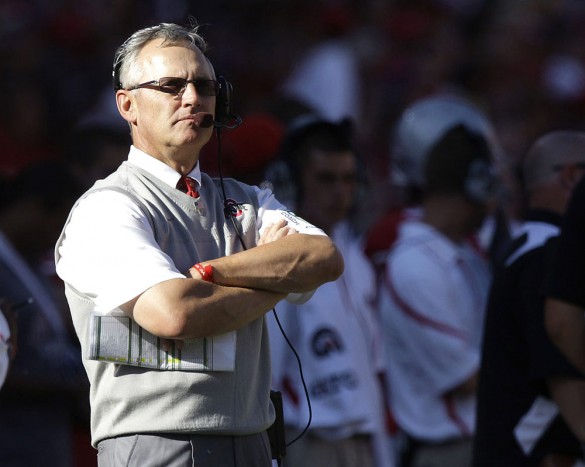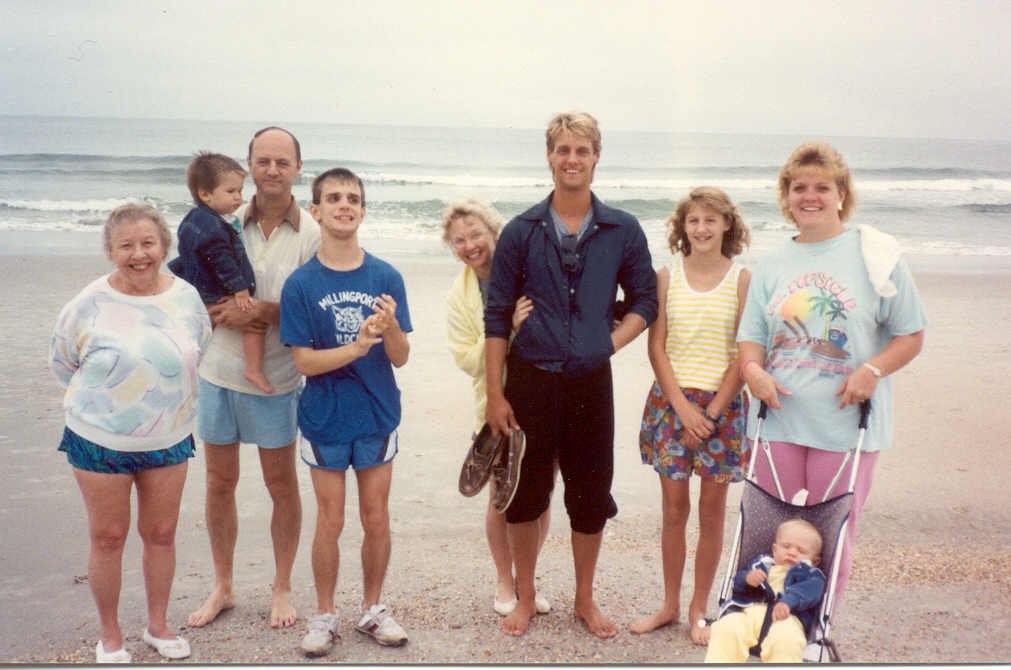A peek behind the curtain
Sometimes when I read about current events, I get mad. Sometimes, I get disgusted. Today, as I read a pretty revealing article from Sports Illustrated about the events that led up to the resignation of Ohio State football coach, Jim Tressel, I got embarrassed. First, let me try to catch some of you up on what event I’m referencing, and then I’ll tell you why I could feel my face getting red as a result of it.
In order to fully understand what has happened to the head coach at one of the country’s premiere universities, you’ve got to accept that there are certain rules which the NCAA requires of programs, players, coaches and universities. Some, to you and me, can seem pretty silly, and perhaps should even be changed, but that’s for other people to debate. One of those rules forbids college athletes from receiving any type of pay. Should they? Maybe. But again, that’s not the point here. The point here is that a coach who “has been lauded for his sincerity and his politeness, and [who] often mention[ed] the prayer-request box on the desk in his office at Ohio State” has now been effectively released for failing to tell the truth.
Is there more to it than that? Well, there are more details and infractions, and apparently a pretty long history of “say one thing but do another” by Tressel, but all of it comes back to almost having integrity. It’s not that anyone is questioning whether or not Jim Tressel was sincere, or that people are pointing their fingers and calling him a hypocrite. More accurately, it appears that people are now scratching their heads and wondering how a man who regularly spent 10 minutes before each meeting and practice reading to his players about humility, faith, and gratitude, could have then so blatantly violated those same virtues when it mattered the most?
The high price we pay as a result of an unchecked lack of integrity in our lives is a steep one, and often leaves us with payment plans stretching out for years to come. Consider this: in the mid-80s, when Tressel was running the summer camp for Ohio State, he was in charge of selling raffle tickets to campers, some of which were prospective OSU players. According to one of the coaches who worked with Tressel, he would rig the drawings so that the potential players would win.
Now, the world didn’t end as a result of that, but it was a violation of NCAA rules. And the price he paid for that? Being a man who could be described by Tony Dungy as a picture of integrity while at the same time being described by the assistant at that camp with the following statement:
In the morning he would read the Bible with another coach. Then, in the afternoon, he would go out and cheat kids who had probably saved up money from mowing lawns to buy those raffle tickets. That’s Jim Tressel.
Ouch.
Assuming Tressel is a man of faith and that integrity matters to him, I’d have to believe that having his name kicked around like that would probably be harder than losing your job and the likelihood of any coaching jobs in the future.
So, why would any of that embarrass me? I didn’t do anything wrong. Heck, I’m not even a fan of Ohio State.
It embarrasses me as a believer. I’m not embarrassed by the fact that Jim Tressel got caught up in the overwhelming consequences of what would appear to be a small crack in judgement (although given the decade-long track record of consistent poor judgement in the same areas, one could argue whether it’s a small crack). There’s forgiveness for those kinds of transgressions. But I’m embarrassed to see the world recognize the importance of integrity more than the church.
Look, let’s just say it like it is. It’s just really tough for me to swallow the fact that a bunch of people who may or may not even know Christ have held up a standard for integrity more than we have in the church. The leaders of Ohio State University finally said enough, and even though I doubt their motives were 100% pure, they made a tough call about a good man who made some really poor choices, and they aren’t apologizing for taking a stand that says lying is wrong, and a man who could so easily do it shouldn’t be in charge of younger men who are learning from him.
I know I’m taking a risk here, and that I might sound harsh, but when do we say enough to inconsistencies in the church? When do we decide that what we can’t see is quite possibly more important than what we can see, and start holding ourselves accountable to truth in every area of our lives? Is it enough to be mostly good, even 99% good? How do we reconcile the other 1% with verses like Romans 12:2?
Do not conform to the pattern of this world, but be transformed by the renewing of your mind.
One of the keys is found in the very next verse: think of yourself with sober judgement. There comes a time when good men realize that they aren’t good enough, and never can be. That left to themselves, apart from the grace of Jesus Christ, they will take seemingly small steps over the line between right and wrong and will find themselves in a whirlwind of consequences threatening to sweep them away.
If we’re honest, we don’t consider a man’s heart as long as the show is good. Consider the following statement from Ohio State booster Geoffrey Webster and ask yourself if it sheds light on the tendency in American Christianity to believe that all we really need is a good band and a great communicator in order to feel good about our church:
“As fans we always write off what goes on behind the scenes,” says Webster. “We say it is no big deal because we so enjoy watching these fellas play. But maybe we need to pay more attention to what is going on behind the curtain.”
The people who will make an eternal impact in this culture will not be the ones who play the best on gameday. They will not be the ones who wear WWJD bands religiously (like Tressel did) but never actually consider the message behind the 4 letters. They will be the ones who think of themselves with sober judgement, and because they understand their desperate need of truth in every area of their lives, will see every step they take as one that can’t be made without Jesus.
When we live with integrity like that, we will find that we don’t need to run and hide when God – or anyone else – decides to take a peek behind the curtain.









Good thoughts, Paul. Enjoyed.
Excellent!
Good thoughts and good question, Paul. We (I include myself) tend to say “Thank God, we are covered by Grace” but is that just a cop-out for what we are really hiding behind that curtain? When it all boils down to it, God sees behind that curtain as well as in front, we may fool some of the people some of the time, but we’re certainly not fooling Him and He ultimately is the one we will answer to.